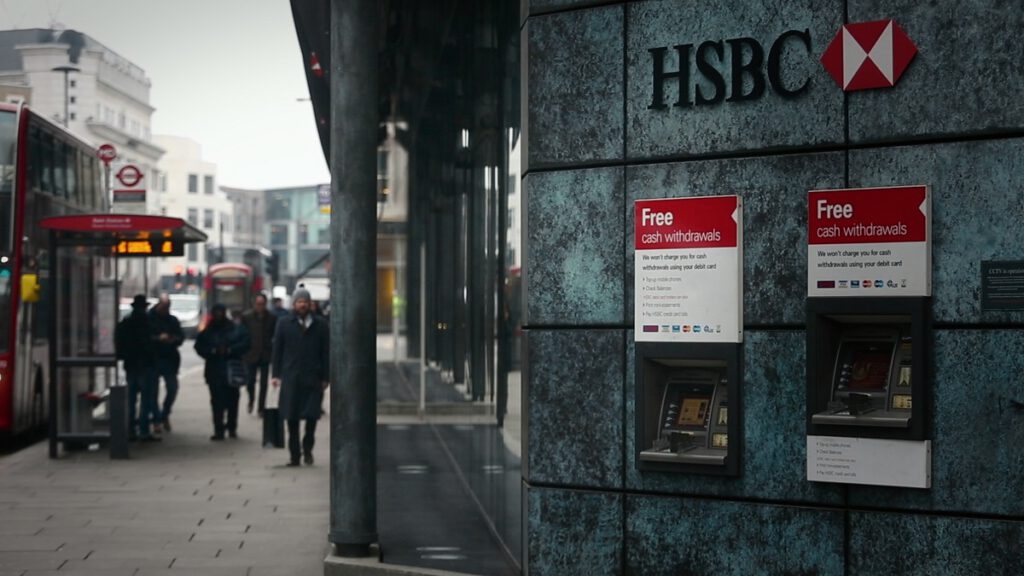Any documentarian can tell a story. Thing A happens, which causes things B and C, and the result is thing D. When the story’s a good one, that can be enough. You learn something, and perhaps horizons are broadened—that alone is a solid achievement. The filmmaker who does more, who uses the story as a springboard for bigger, messier questions, creates something far beyond entertainment and education. Such an artist leaves ends untied, making room for the questions a viewer may ask themselves. Perhaps those questions linger, and maybe the world still start to look a little different. All that, and a good story, too.
“Dirty Money” has six good stories, and plenty of big, messy questions can be found within. The latest from Alex Gibney (“Going Clear: Scientology and the Prison of Belief”), Netflix’s investigative documentary series spins out stories of financial corruption and decay. There are payday loans and drug cartels, clean diesel cars and hedge fund disasters, and an hour on how a con man might turn business failures into a presidency. The stories themselves are all very different—wait for the hour on the maple syrup battles in Quebec—but what unites them is the sense that very little is as simple as it seems. Things are the way they are, “Dirty Money” reminds us, not because there are bad actors, but because there are systems in place that allow those people to thrive, and few, if any, means if ensuring these things don’t happen again.
That description may give the impression of a series designed to stoke righteous fury and sour resignation in equal measure, and that’s fair. It can, and likely will, do both those things. But that’s only part of the picture. Gibney and his five fellow directors—Jesse Moss, Erin Lee Carr, Kristi Jacobson, Brian McGinn, and Fisher Stevens—have created something that’s far from dour. “Dirty Money” is eminently, compulsively watchable, somehow counterbalancing the heaviness of the subject matter with an undercurrent of urgency and a keen sense of how to keep things entertaining. As with Gibney’s “Going Clear,” these six pieces combine engaging personalities, stranger-than-fiction facts, and the aforementioned big, messy questions to keep audiences locked in with the dense, often troubling subject matter.
Gibney’s installment is the first, and it’s a solid opener. “Hard Nox” is framed as being a slightly personal affair from moment one, as Gibney opens his narration with the words, “I thought I had found the perfect car.” It’s a great place to begin the series as a whole, because while each of these stories has far-reaching implications, they’re personal to many of the people who appear on screen. Gibney and his wife feel lied to and taken advantage of by Volkswagen, which peddled an environmentally friendly vehicle to the public while using ‘defeat devices’ to hide the fact that emissions from those cars were up to 400 times the legal limit. The regulators misled by Volkswagen have a keen sense of betrayal; a VW executive is angered by the peers who deceived him, but nevertheless helps to try to cover up the mess.
It’s a story that affects millions (to say nothing of the planet as a whole), but it’s also specifically about these people, and that’s a trait shared by all six episodes. It’s key to the success of “Payday,” the Jesse Moss-directed second installment, which centers on the story of Scott Tucker, a payday loans mogul whose elite racing cars are being seized by the government as the episode opens. Tucker’s the kind of figure it would be easy to paint as almost cartoonishly evil, getting rich by taking advantage of the desperation of low-income families. Moss doesn’t shy away from that, but he’s more interested in how someone like Tucker processes his own wrongdoing. Tucker’s given plenty of time to talk, and his favorite subject seems to be the ways in which he’s victimized. Moss’s careful framing helps to underline the hypocrisy present in Tucker, lingering often on a graceful chandelier or an expensive grill, but his isn’t a cruel perspective. The camera doesn’t need to condemn Tucker, who seems perfectly capable of doing that himself.
Unlike Tucker, the wrongdoers central to Erin Lee Carr’s “Drug Short” appear only in news footage—a CNBC clip here, a snippet of a Senate hearing there—but they loom no less large. The best outing of the series, “Drug Short” focuses on Valeant Pharmaceuticals and its C.E.O., Michael Pearson, as well as the reporters and short sellers who discovered that the company was built like a house of cards. Carr moves the narrative forward in unexpected ways, sometimes asking a question and withholding the answer until the viewers had some time to figure it out alone—one such instance, in which she asks why a subject has asked to remain anonymous, is particularly effective. But even at its most straightforward, “Drug Short” epitomizes what “Dirty Money” does at its best: makes clear the wrongs that have been done, while also illustrating how hard, how nearly impossible, it is to do anything about them.
Each installment achieves that aim, more or less. They’re not all gems—the final hour, “The Confidence Man,” suffers a bit because the ethical bankruptcy of the guy currently occupying the Oval Office is already extremely well-documented—but not one of these six hours is a dud, either. If nothing else, the series offers a chance to take in similar stories from six unique directors, and while there’s definitely a sense of thematic and stylistic continuity, “Dirty Money” also allows each director plenty of room to work in their own way. The result is a showcase for six skilled directors, and if the series gave me plenty of reasons to despair for the future of the country, it also made me very optimistic about the future of documentary television. Our country’s ethical coffers may be running low, but when it comes to filmmaking, there’s a glass half full.












